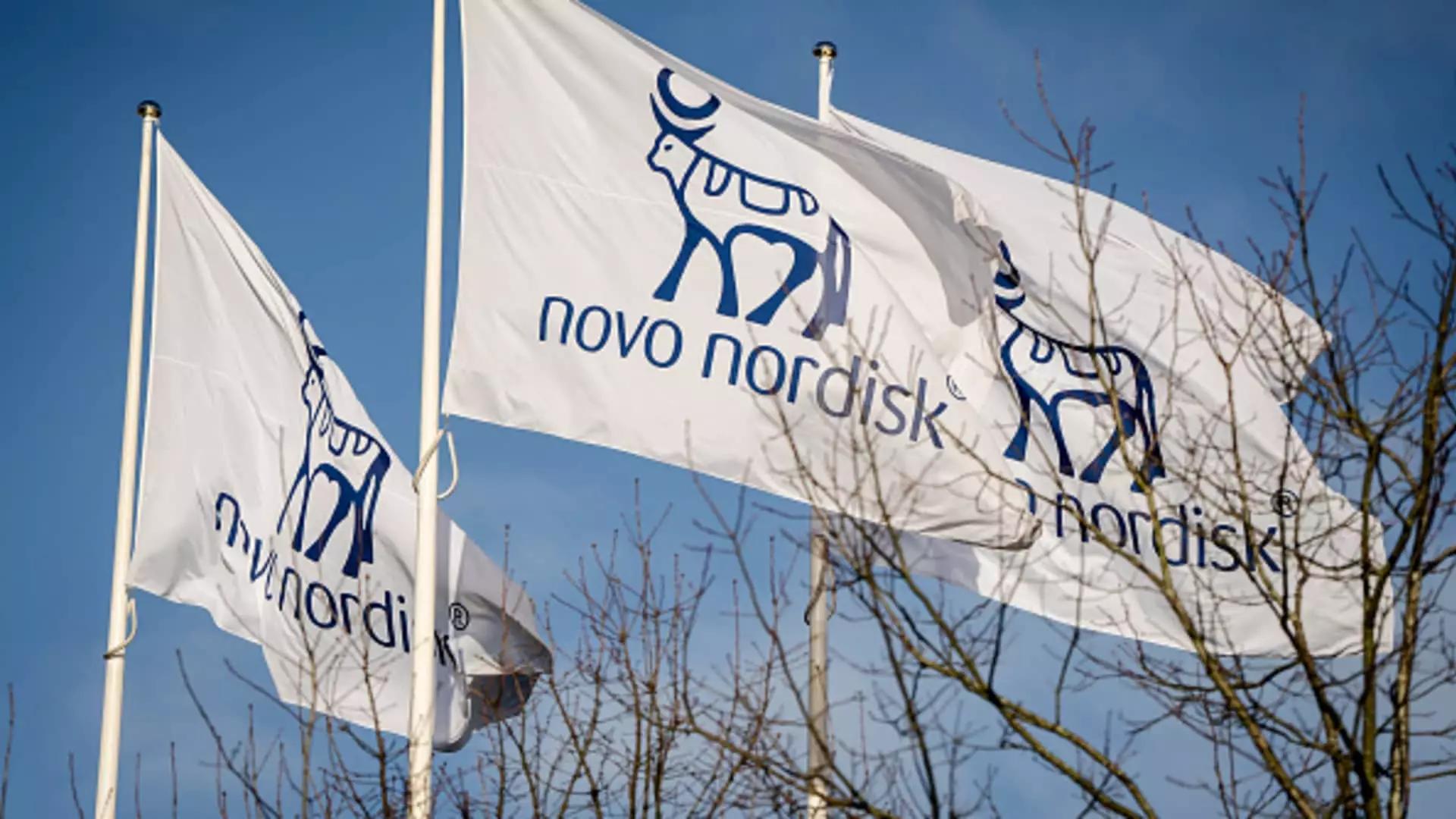In an era where chronic diseases plague countless individuals, Novo Nordisk has recently illuminated a beacon of hope with its latest findings on Rybelsus, a groundbreaking diabetes pill. Following a comprehensive late-stage trial that spanned nearly four years, the results have revealed a 14% reduction in the risk of cardiovascular-related death, heart attacks, and strokes for patients managing both diabetes and established heart disease. These numbers are not merely statistics; they represent a monumental step towards redefining treatment paradigms for millions of people who juggle the complexities of diabetes and its associated cardiovascular risks.
The significance of these findings cannot be overstated. As a once-daily oral medication, Rybelsus provides a solution for many who are resistant to injectable treatments—an option that could radically shift the landscape of diabetes management. In a world where needle phobia can deter patients from receiving essential care, Rybelsus emerges not just as a drug, but as a lifeline.
Understanding the Trial’s Impact and Methodology
The ambitious phase three trial involved over 9,600 participants aged 50 and older, making this one of the most extensive studies to evaluate the cardiovascular effects of an oral diabetes treatment. This expansive sample size enhances the credibility of the findings, showcasing Rybelsus not just as another drug on the market but as a potent candidate for reshaping treatment protocols. The trial’s design allowed researchers to rigorously assess outcomes over a substantial duration, ensuring that any observed benefits were both reliable and clinically relevant.
What is particularly notable is the protective effect of Rybelsus against non-fatal heart attacks, which saw a remarkable 26% reduction compared to the placebo group. When considered collectively, the trial elucidates just how crucial this medication could be in mitigating the dire consequences of cardiovascular complications. While some may argue that the management of diabetes is primarily focused on blood sugar levels, these results emphasize a paradigm shift: the interconnection of diabetes with cardiovascular outcomes should be central to treatment discussions.
An Alternative to Injections: Convenience Meets Efficacy
The administration of Rybelsus comes with specific instructions that require patients to take it on an empty stomach, an aspect that might deter some. Nevertheless, the convenience of a once-daily pill is an appealing alternative for patients wary of injections. Stephen Gough, Novo Nordisk’s global chief medical officer, provided insights into the need for varied treatment options, underscoring that individualized care should be at the forefront of therapeutic approaches.
As the data from this trial unfolds, it raises the essential question: will the healthcare system be responsive enough to integrate this evidence into practice? There’s an urgent need for healthcare providers to recognize that patient compliance is often directly linked with the form of medication delivery. By opening avenues for oral treatment options, we are likely to foster better adherence and outcomes among patients who otherwise might disengage from their treatment plans.
Competitive Landscape and Future Implications
While Novo Nordisk has made significant strides with Rybelsus, the competitive landscape is evolving swiftly as other pharmaceutical companies, notably Eli Lilly, race to develop oral GLP-1s for similar applications. This innovation race not only reflects the industry’s recognition of the changing patient needs but also underscores the shifting paradigm towards more patient-centered approaches in chronic disease management. As Rybelsus gains traction and attention, we can expect intensified scrutiny and demand for further advances, particularly in how these medications can address weight management and other associated conditions such as sleep apnea.
Moreover, the implications extend beyond just cardiovascular health. The full spectrum of Rybelsus’s benefits may catalyze broader discussions on healthcare policies, especially regarding insurance coverage and accessibility. As the healthcare framework gradually shifts toward value-based care, medications demonstrating tangible cardiovascular benefits alongside diabetes management could face a precarious push for equitable coverage and inclusion in treatment formularies.
In light of these trial results, it’s critical for the medical community to embrace the transformational potential of Rybelsus. With a track record of cardiovascular advantages that are on par with injectable alternatives, there’s a promising future ahead for many patients who may finally find a treatment pathway that aligns with their personal preferences and health goals. The challenge now lies in translating this groundbreaking research into a seamless part of routine clinical practice, ensuring that patients can reap the rewards of this new medical marvel.

